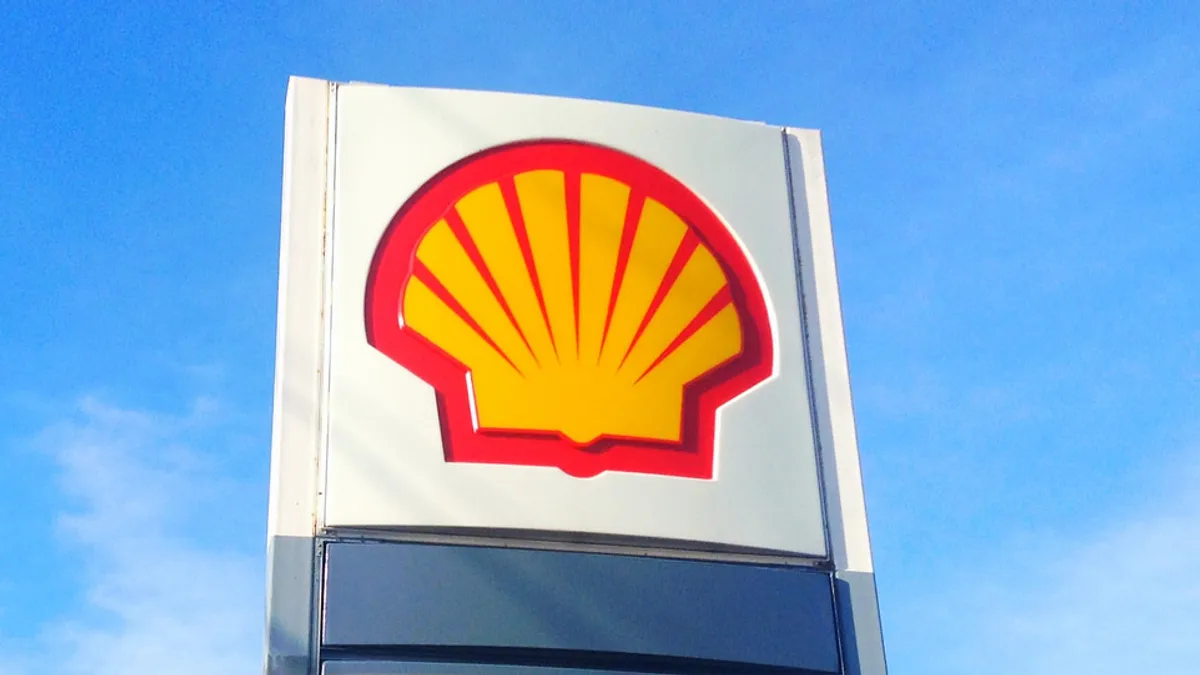Dive Brief:
- Oil and gas company Shell announced today an investment in mobile transit ticketing platform Masabi. The companies did not disclose the terms of the investment.
- Masabi said the investment would help deploy its Justride fare payment system, which allows transit passengers in cities across the world to purchase tickets before they travel, in addition to other mobile-based features. Justride is currently used by more than 70 clients in 13 countries, the company said, including cities like New York, Denver, Las Vegas and Los Angeles.
- The company sees the "need to take vehicles off the road by transitioning drivers to become riders," in addition to transitioning to low-emissions projects, Roger Hunter, Shell’s vice president of e-mobility, said in a statement. To do that, there needs to be "a revolution in how people make and take journeys in and around cities; public transport has to modernize and become easier and simpler to choose and use," he said.
Dive Insight:
This is a notable investment for Shell and could point to the oil and gas company's push toward diversification.
Concerns about the environment helped drive this decision, and is a key part of the company's overall aims, a Shell spokesperson told Smart Cities Dive in an email statement.
"We have a clear strategy which sets a competitive path forward to create a world class investment case by delivering more and cleaner energy solutions," the spokesperson said. "We view this move as part of that. We think a long-term goal for the world to achieve net zero emissions is challenging but feasible — requiring urgent action and long-term vision from policymakers to stimulate commercial and consumer opportunities. Shell will play its role where it makes commercial sense and you're getting a glimpse of that in this partnership."
Fossil fuel companies' roles in the climate crisis have been well-documented, and cities and states have increasingly looked to punish them with high-profile lawsuits and efforts to divest from fossil fuel interests. For their part, companies have started to at least pay lip service to alternative fuels and ways to get around. BP's website, for example, say it is "advancing the options" that are "cleaner and better."
The investment also has similarities with automaker efforts to be more than car manufacturers, and instead be known as mobility companies. Ford ran with that trend in 2018 with its purchase of dockless scooter company Spin, while others have been moving into manufacturing electric vehicles (EVs) and are looking to get involved in other areas like ride-hailing as a way to promote better urban living.
The Shell spokesperson said the decision to invest in Masabi was driven by wanting to go where their customers are.
"To thrive in the energy transition we have to deliver the products and services our customers need — not only today but in the future," the spokesperson said. "Making good on that commitment means providing more choices and convenience from transport systems along with greater connectivity... Today, significant changes are taking place, at different paces in different countries. It’s critical that we recognize and keep up."
Partnering with a technology company that looks to make transit a more attractive option is another way to attempt to help cut carbon emissions, although time will tell if it allows Masabi to expand as quickly as it would like and drive increased transit ridership.
For Masabi's part, this deal represents another strategic partnership as it looks to gain an even stronger foothold in the mobility-as-a-service (MaaS) arena. Last year, it partnered with trip-planning app Transit to add integrated mobile ticketing and payment options, and joined Uber to provide public transportation information in select cities.












